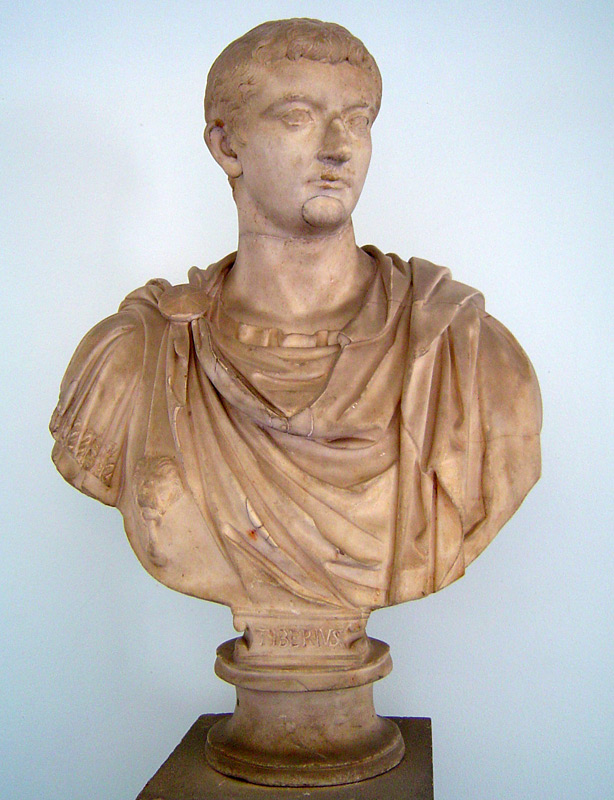Tiberius bol v rokoch 14 po Kr. – 37 po Kr. druhým cisárom Rímskej ríše. Bol to nevlastný syn cisára Augusta, člen juliánsko-klaudiovskej dynastie.
Obdobie vlády cisára Tiberia je obzvlášť dôležité pre rímsky principát, keďže to bola prvá udalosť, kedy pocty a právomoci zverené v predošlých rokoch do rúk Octaviana Augusta boli prevzaté inou osobou, a teda osobou Augustovho nástupcu.
Tiberius bol povahovo úplne odlišný od svojho predchodcu. Zatiaľ čo Augustus bol prístupný a taktný, Tiberius sa z dochovaných správ javí ako tajomný muž. Bol inteligentný, chytrý a prefíkaný, ale bol aj náladový a niekedy upadal do depresie a zlej nálady, čo malo vplyv na jeho politickú kariéru i osobné medziľudské vzťahy. Jeho vláda bola plná protirečivých skutočností. Napriek svojej výraznej inteligencii, dostal sa Tiberius pod vplyv mužov, ktorí jednoznačne sledovali len svoje osobné ciele a svojimi činmi nepriaznivo pôsobili na samotnú Tiberiovu reputáciu v očiach rímskeho ľudu a senátu. Napriek svojim ohromujúcim vojvodcovským skúsenostiam, upustil od agresívnej dobyvačnej politiky Ríma. Za jeho vlády neviedol Rím žiadnu veľkú vojnu, a teda hranice ríše zostali počas týchto rokov nezmenené. Pokračoval však v budovaní tzv. limes romanus, s čím začal už cisár Augustus. Napriek svojim rozsiahlym administratívnym a politickým skúsenostiam nadobudnutým počas rokov zastávania rôznych dôležitých ríšskych úradov, od začiatku prejavoval odpor k zastávaniu funkcie imperátora Rímskej ríše. Neskôr dokonca nadobro opustil mesto Rím a dožil svoj život ako 78-ročný na ostrove Capri, izolovaný od celkového spoločenského diania. Odtiaľ ríšu ovládal iba písomnými nariadeniami.
Tiberiova vláda reprezentuje obdobie dospievania principátu ako inštitúcie, a ako každé dospievanie, aj toto sa ukázalo ako veľmi náročná éra.
Wikipedia
✵
16. november 42 pred n. l. – 16. marec 37 n. l.
